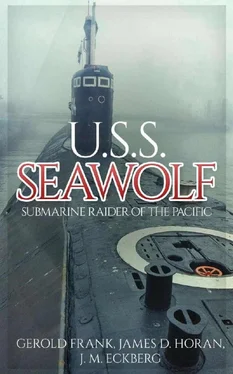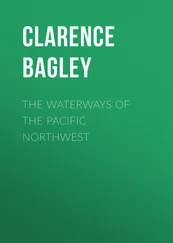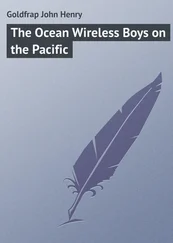There were all sorts of stories about Tokyo Rose. One was that she was an Englishwoman who’d married a Jap. We listened; amazed at the statistics she reeled off to prove we were being licked. She gave names and tonnage of the ships she said we had lost, and the dates and the places. This might have worked on us after a while, if it weren’t for John Street, a slow-spoken, casual, six-foot Machinist’s Mate from Colorado. John loved figures. He liked to read them, write them, and add them up. A crack accountant was lost when he went into the Navy to take charge of No. 2 engine on the Wolf . He was always armed with the “book”—a combination dictionary and encyclopedia—and under his bunk he’d packed away Jane’s Fighting Ships , the latest edition of the World Almanac , and a Universal History in one volume. Street would take out a carefully sharpened pencil, wet the point between his lips, and as Tokyo Rose cited the destruction of the American fleet, he took down the names of the ships. Then he looked them up. “She’s all wrong,” he’d say, mildly. “We didn’t have that many ships in the fleet in the first place.”
After she signed off we tuned in Station KGEI, the short-wave station in San Francisco. Now we heard the list of Jap ships the U.S. had sunk. John listened to this as carefully, and as methodically looked up the record. He said sadly, “Hell, there’s no more navies left in the world.” We knew the Frisco radio was broadcasting for Jap consumption.
Now the Wolf was moving cautiously. We were cruising off the northeastern coast of Luzon, off Aparri itself. The Japs had landed here within the last twenty-four hours. This was the spearhead of their attack, their toughest job. Luzon was more heavily protected than any other Philippine island, and the Japs had to take Luzon if they wanted a base for planes. They’d hit Aparri hard, roaring up to the beach in armored barges and streaming ashore by the thousands, falling in front of withering fire, yet pouring in until by sheer weight of numbers they gained a foothold. If we could get a crack at one of those transports… If we could send a fish into the guts of one of those big babies…
These were very dangerous waters. We dove at 4:30 a.m. I completed my morning watch at 8 a.m. and fell asleep in my bunk, in shorts and sandals this time. About an hour later I was awakened by a shout. Something on sound again! It looked as if I’d never catch up on sleep. I took over the sound shack. I searched. I sent up my message to the conning tower: “Sound has something, sir.”
Lieut. Holden’s deep voice came back: “Very well. Control, what’s your depth?”
“Eighty-five feet, sir,” came from the man at the depth gauge.
“Bring her up to periscope depth, and we’ll have a look.”
“Aye, aye, sir.” The word was relayed to the bowplanesman:
“Bring her up and be careful. We may have something up there.”
The Wolf rose silently through the dark waters.
“Here we are, sir,” from the bowplanesman.
“Up periscope.” Holden’s voice was almost casual. We heard the drone of the periscope sliding upward in its channel. A moment later: “Down periscope!” Holden’s voice had a new note in it. “Call the Captain.”
A messenger hurried to Captain Warder’s stateroom. In less than two minutes the Skipper, in shorts and sandals, was climbing up the ladder. His sandals made a slapping sound. His deliberate words came over the intercom: “What do you have, Mr. Holden?”
“A Jap destroyer, sir. Portside bearing three one zero relative.”
“Good!” said Captain Warder. “Up periscope.” He held it up there less than fifteen seconds. “Down periscope. Battle stations.”
His voice had scarcely faded away before the raucous aaaap! aaaap! of the battle-station alarm blared through the boat. Half-naked, their bodies gleaming in the yellow light, the men tumbled out of their bunks. The narrow passageways were suddenly filled with men and then as suddenly cleared as each man fitted into his assigned position.
The approach party—the men who had to plot the maneuvering to place the Wolf in the best possible position to fire, taking into account her course and the enemy’s course and speed—grouped themselves about the plotting table in the control room. They were Ensign Mercer, Ensign Casler, Frank Franz, and one H. H. Thompson, called “Hard-Hearted Henry” simply because of his initials. Maley hurried in to stay with me in sound. Rudy Gervais, an exuberant Frenchman, just twenty-one, his face shining, his dark brown eyes alert, took over as helmsman.
Everyone was at his post.
In sound, Maley and I, with our phones on, listened hard. As from a great distance, I heard a gentle Ping!… Ping! as though someone had plucked the E string of a violin. This was the telltale sound of the enemy’s sound-detection apparatus. He was searching for us—sending out electrical sound waves—and we were listening for him. We waited.
Over the intercom, Captain Warder’s even voice: “She’s a Jap, all right. Akasaki class. Big destroyer. Guns mounted fore and aft. Multiple torpedo tubes midships. Depth charge racks. Estimated course, zero seven zero. Estimated speed, fifteen knots. Range, 3,000 yards. Seems to be patrolling outside a cove.” Pause. “Down periscope.” Then, in a satisfied tone: “We’ll wait a couple of minutes. Then we’ll make another check.”
Zero seven zero meant the enemy was on a course 70 degrees from true north. Zero zero one, for example, would mean one degree; three five nine would mean 359 degrees. Thus we could plot our approach, having the enemy’s course from a fixed point on the horizon.
The crew of the Wolf waited, silent. Slowly we slipped into position. The sea was rough now; we rolled and pitched. I had the Jap propellers in my earphones: whish—sh… whish-sh… whish-sh… and now and then a suddenly weakened fluff… fluff… whish… sh! The enemy destroyer was pitching so heavily that every few seconds his propellers cleared the water altogether and churned the air.
“Ah!” Captain Warder’s voice was eager. “She’s heading directly for us. Probably en route to the homeland. We won’t attack until we get in a more favorable position.” Then a change in his voice: “Wait a minute, wait a minute!… If the Japs have a destroyer out here, they must have something inside that cove.” Silence. Then, as though debating with himself: “Sea conditions are against me. Fish might broach. On the other hand, this is a man-of-war. He’s enemy shipping. I’m ordered out here to destroy him. But if I attack, successful or not, they’ll know I’m here, and then they’ll pull whatever they have inside that cove away from here.”
The Wolf marked time. Captain Warder was thinking it through. Was it to be this Jap destroyer, sitting before us, a fat, inviting target, or was it wiser to ignore him and set our sights for bigger prizes inside the cove? Two full minutes dragged by. No one spoke. I heard men coughing, clearing their throats, shuffling, making the small noises men make under pressure. Deeper in the boat, men stood and watched the loud speakers, waiting. I heard the Jap’s screws over sound. I spun my dials, kept him clear, and gave the Captain his bearings:
“Screws bearing zero two zero, Captain.”
“Very well, Eckberg.” Still preoccupied.
“Target seems to be drawing aft, Captain.”
“Yes—ss, that’s right. He’s staying on the same course. Let me know if the pattern changes.” Then, with sudden finality:
“Secure battle stations. We will not attack. We’re going to look inside that cove.”
Читать дальше






![Hubert Bancroft - The Native Races [of the Pacific states], Volume 5, Primitive History](/books/749157/hubert-bancroft-the-native-races-of-the-pacific-s-thumb.webp)

![Hubert Bancroft - The Native Races [of the Pacific states], Volume 1, Wild Tribes](/books/750126/hubert-bancroft-the-native-races-of-the-pacific-s-thumb.webp)



![Edward Ellis - Adrift on the Pacific - A Boys [sic] Story of the Sea and its Perils](/books/753342/edward-ellis-adrift-on-the-pacific-a-boys-sic-s-thumb.webp)